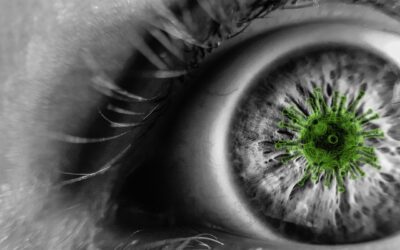Diabetic retinopathy, a complication of diabetes, can have detrimental effects on vision if left untreated. In severe cases of this condition, intraocular injections of medication have emerged as a primary treatment approach. These injections deliver medication directly to the retina, helping to prevent further complications associated with diabetes. In this blog, we will explore how intraocular injections can help manage diabetic retinopathy and improve overall prognosis.
Understanding Diabetic Retinopathy and its Impact
Diabetic retinopathy is a condition that affects the blood vessels in the retina, the light-sensitive tissue at the back of the eye. High levels of blood sugar associated with diabetes can damage these blood vessels, leading to various eye problems.
In the early stages of diabetic retinopathy, known as non-proliferative diabetic retinopathy, small blood vessels in the retina leak fluid or blood, causing swelling and leading to blurred vision. However, as the condition progresses to the advanced stage, known as proliferative diabetic retinopathy, new, abnormal blood vessels may develop on the retina’s surface. These vessels are fragile and prone to leakage, potentially leading to severe vision loss and even retinal detachment.
Intraocular Injections: A Cutting-Edge Treatment Approach
To address severe cases of diabetic retinopathy, intraocular injections of medication are now widely used. These injections are specifically designed to deliver medication directly inside the eye, targeting the underlying causes of diabetic retinopathy and preventing further deterioration.
The two primary types of medications used in intraocular injections for diabetic retinopathy are:
Anti-VEGF Medications: Vascular endothelial growth factor (VEGF) is a protein that stimulates the growth of abnormal blood vessels in the retina. Anti-VEGF medications work by blocking the effects of VEGF, reducing the growth of abnormal blood vessels, and preventing leakage. These medications include drugs such as ranibizumab, aflibercept, and bevacizumab.
Steroid Medications: Steroids have anti-inflammatory properties and can reduce swelling and inflammation in the retina. These medications, such as triamcinolone acetonide or dexamethasone, can help stabilize blood vessel walls and decrease leakage.
Enhanced Prognosis with Intraocular Injections and Other Interventions
Intraocular injections, when combined with other essential interventions, can significantly improve the prognosis for individuals with severe or proliferative diabetic retinopathy. It is crucial to remember that intraocular injections alone are not a standalone treatment for diabetic retinopathy. The following measures are essential in managing the condition effectively:
Blood Sugar Control: Maintaining good control over blood sugar levels is crucial in managing diabetic retinopathy. Consistently monitoring blood sugar, following a diabetic diet, and taking prescribed medications or insulin as directed can help prevent further damage to the blood vessels in the retina.
Regular Eye Examinations: Routine eye examinations are vital in detecting and monitoring changes in the retina caused by diabetic retinopathy. Early detection allows for prompt treatment and minimizes the risk of severe vision loss.
Laser Treatment: Laser treatment, known as photocoagulation, is often used in combination with intraocular injections to manage diabetic retinopathy. Laser therapy can help seal leaking blood vessels, prevent the growth of abnormal blood vessels, and reduce swelling.
Vitrectomy: In some cases, a surgical procedure called vitrectomy may be necessary. This procedure involves removing the gel-like substance (vitreous) within the eye, along with any blood or scar tissue that may be interfering with vision.
By diligently managing blood sugar levels, undergoing regular eye examinations, and receiving appropriate interventions such as intraocular injections and laser treatment, individuals with severe or proliferative diabetic retinopathy can significantly improve their prognosis.
Consulting with an Eye Care Professional
If you have diabetic retinopathy or are concerned about potential vision complications related to diabetes, it is crucial to consult with an eye care professional experienced in managing diabetic eye diseases. They will conduct a comprehensive eye exam and determine the appropriate course of treatment based on the severity of the condition and individual factors.
During your consultation, feel free to discuss any questions or concerns you may have regarding intraocular injections, potential side effects, treatment duration, and expected outcomes. Your eye care professional will provide guidance, evaluate your specific needs, and recommend an individualized treatment plan.
Embracing Treatment Options and Enhancing Prognosis
Intraocular injections have revolutionized the treatment of severe or proliferative diabetic retinopathy, offering a direct approach to managing the underlying causes of the condition. When combined with other interventions, such as blood sugar control, regular eye examinations, laser treatment, and potentially vitrectomy, intraocular injections can provide individuals with a much-improved prognosis.
By consulting with an eye care professional and adhering to the recommended treatment plan, individuals with severe or proliferative diabetic retinopathy can take significant steps toward preserving their vision and maintaining a high quality of life. Embrace the available treatment options, adhere to the recommended interventions, and pave the way for a brighter future with managed diabetic retinopathy.





